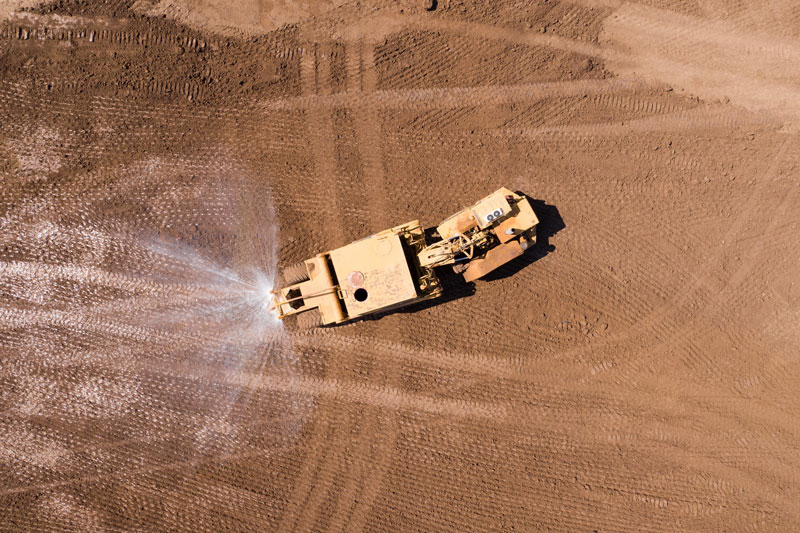
A new liquid compaction aid designed for bulk earthworks has been developed by leading fine particle specialist RST Solutions to improve road and infrastructure construction projects.
COMPAK is a uniquely balanced liquid compaction aid now on the market after rigorous testing to demonstrate its advanced capabilities. Designed for bulk earthwork projects, COMPAK simplifies compaction stages by requiring significantly less water and reducing the amount of time and energy these processes usually take.
Added to water carts used during the stages of compacting bulk earthworks, COMPAK improves materials used, such as soil to silt and clay, by binding particles closer and more tightly to remove void spaces. This enables contractors to greatly improve substandard materials in situ for use in bulk earthworks for construction of infrastructure such as roads, dams and hardstand areas.
By incorporating COMPAK into earthworks construction practices, companies are achieving higher levels of compaction to greater depths much faster with significantly less water. COMPAK’s unique properties disperse and lubricate soil particles, reducing porosity, pore size distribution, and pore continuity. This greatly reduces water permeability and water infiltration through the compacted soil structure, which can lead to an increased K Factor and a potential increase in susceptibility to surface runoff.
The RST Solutions Research and Development team has been working on new technology for bulk earthworks to improve clients’ delivery of higher quality roads and infrastructure. Mine sites, quarries and civil construction companies now using COMPAK are seeing marked improvements in line with laboratory permeability testing, it said.
“Laboratory Falling Head Permeability Test results indicate that COMPAK can increase the K Factor of soils by one or two levels of magnitude. This is a significant reduction in soil permeability,” RST said.
Operations and Technical Director David Handel added that the team’s goal when developing COMPAK was to design a solution that treated a range of raw materials to improve their quality so contractors could achieve the right balance between compaction density and runoff.
“Soils high in clay tend to have higher K values, typically ranging from 0.2 to 0.4, because while they are resistant to detachment, once detached, they are easily transported by water. On the other hand, coarse-textured soils like sandy soils usually have lower K values, around 0.05 to 0.2, due to higher infiltration rates and less runoff, even though they are easily detached,” he said.
“COMPAK has been developed to improve all types of soils by binding particles together and removing void spaces to significantly reduce soil permeability and strengthen all the layers of earthworks. These are the unseen elements that can be the difference between high quality roads and infrastructure that require little maintenance, and poor-quality roads always in need of repairs.”
The average dosage rate for COMPAK is very low at just 200 ml per cubic metre of water. Application suits all bulk earthworks including clay cappings and liners, dam floors and walls including ‘cut and fill’ and tailing dam cell construction.
